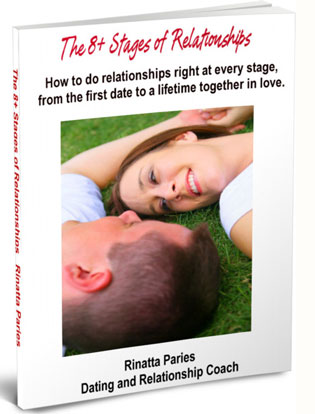 Anger in small doses is a normal part of all relationships. However, it does not take much of it to start creating relationship problems and damage. This Relationship Key will give you 3 steps to effectively manage and defuse anger before it hurts your relationship.
Anger in small doses is a normal part of all relationships. However, it does not take much of it to start creating relationship problems and damage. This Relationship Key will give you 3 steps to effectively manage and defuse anger before it hurts your relationship.
Do you manage anger in your relationship well or does it manage you and damage your relationship?
Beyond a certain point of anger all human beings lose their ability to function rationally, as a cascade of neuro-chemicals are released into the brain and body. This is why people often say and do things when angry that they are sorry about once they cool down. If you reach this point while still interacting with your partner, all bets are off in terms what damage you will create in your relationship and what you will have to clean up later. Too much of this in your relationship will eventually erode the good feelings between you.
This is why there are many ideas on anger management. Many of these involve stopping yourself before you reach the boiling point. However, people who struggle with anger struggle with stopping themselves, which means this strategy becomes difficult to implement.
Below are three internally-focused strategies to help you get to the point where you can stop yourself before you blow your top:
1. Understand that as soon as you lose your cool, you lose the chance to get what you want.
A little anger and frustration can make a strong point. By a little here I mean that your voice may go up a notch, or your words become just a bit sharper. However, as soon as your voice goes up too much, your start saying hurtful or mean things, or you lose it in any other way, you lose.
No one will willingly give you anything you want once you lose control. If you do get something you want by getting angry you won’t be able to keep it for long, as your partner will be only giving grudgingly under duress. That is not a good recipe for a loving relationship.
Do this: If you feel you are about to lose it in any way, remind yourself that you are about to sacrifice what you want. Stop what you are doing or saying and walk away to cool off.
2. Are you sure that what you think is happening is actually happening?
What you are telling yourself about the situation is often the thing that creates your strong emotional reaction. You think you are angry at what is happening, but more likely you are angry at what you think is happening. Often these two are not at all the same!
If you are going to be angry, it would make sense to be angry about the right thing.
Do this: Ask clarifying questions, such as “did you mean…” or “are you telling me…”, until you are certain that you know what exactly is going on with your partner.
3. Check your sense of entitlement to prevent anger coming back at you.
Your anger likely comes from a sense of entitlement, a sense that you have the right to demand the thing you want from the person you want it from. In some cases you do have the right to demand the thing you want. In all cases this makes no difference!
The person towards whom you feel entitled is guaranteed to feel that you have no right to demand anything from them and is likely to feel angry at your entitled behavior. This means you are going to end up with two angry people. This is not a good set up for getting anywhere positive in a relationship.
Do this: Remind yourself frequently that no one owes you anything even if you wish they did, not even your partner. You have no right to try to demand it, only the right to ask. If you feel yourself heat up with anger, remember #1 above.
The Key to anger management is taking in these three ideas. If you understand and buy into these points you will find it easier to control yourself before you lose it and act out in anger!
Often anger is a response to not getting things you want and need in your relationship. Managing your anger is one important step. However, the next step is learning to function in your relationship so that both you and your partner get what you most want and need from each other. Start on the road to creating THE relationship you want in a Get Clarity Coaching Session.
Get more articles like this delivered to you by email by getting the Relationships Keys here.
